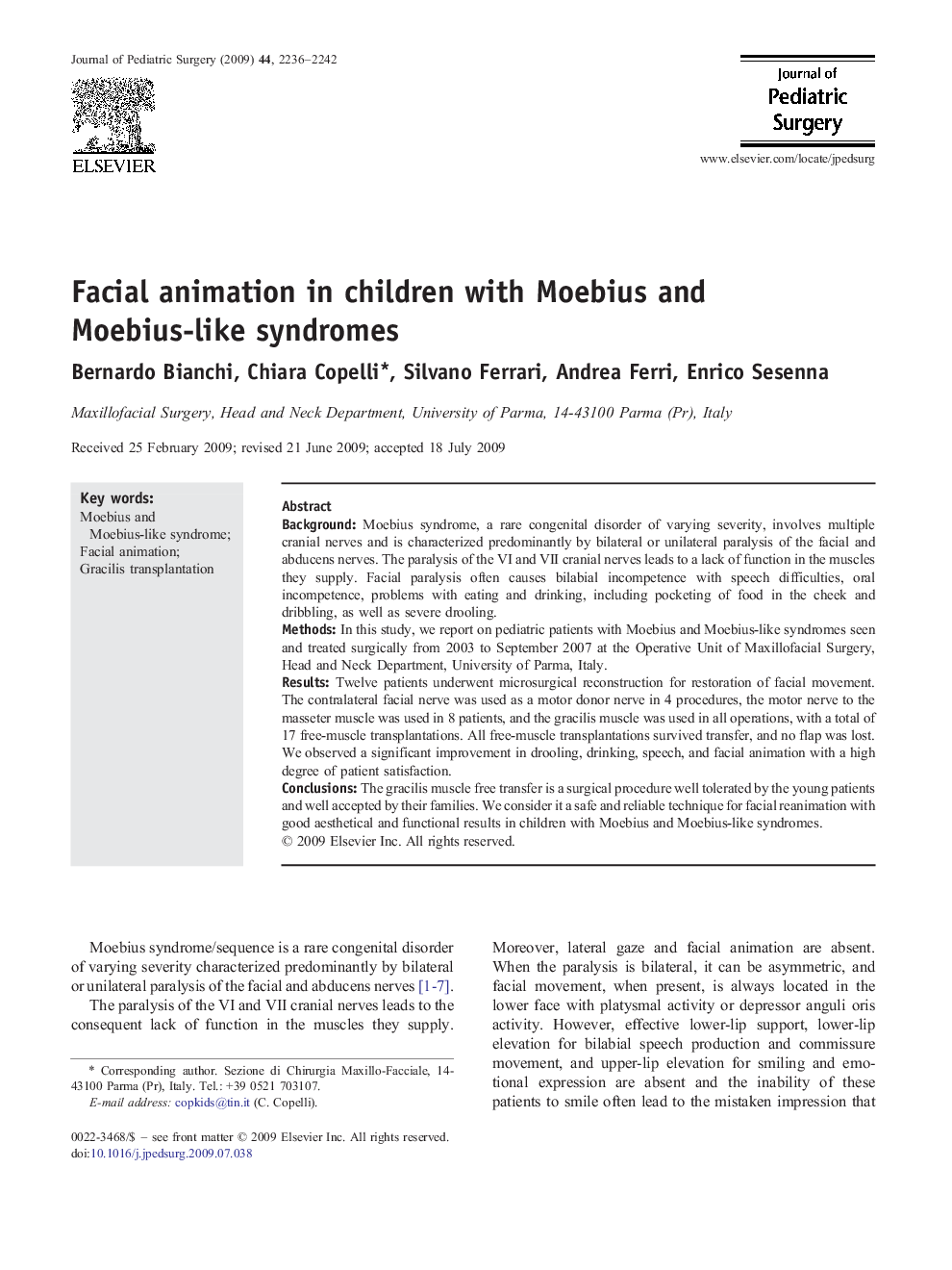| Article ID | Journal | Published Year | Pages | File Type |
|---|---|---|---|---|
| 4157698 | Journal of Pediatric Surgery | 2009 | 7 Pages |
BackgroundMoebius syndrome, a rare congenital disorder of varying severity, involves multiple cranial nerves and is characterized predominantly by bilateral or unilateral paralysis of the facial and abducens nerves. The paralysis of the VI and VII cranial nerves leads to a lack of function in the muscles they supply. Facial paralysis often causes bilabial incompetence with speech difficulties, oral incompetence, problems with eating and drinking, including pocketing of food in the cheek and dribbling, as well as severe drooling.MethodsIn this study, we report on pediatric patients with Moebius and Moebius-like syndromes seen and treated surgically from 2003 to September 2007 at the Operative Unit of Maxillofacial Surgery, Head and Neck Department, University of Parma, Italy.ResultsTwelve patients underwent microsurgical reconstruction for restoration of facial movement. The contralateral facial nerve was used as a motor donor nerve in 4 procedures, the motor nerve to the masseter muscle was used in 8 patients, and the gracilis muscle was used in all operations, with a total of 17 free-muscle transplantations. All free-muscle transplantations survived transfer, and no flap was lost. We observed a significant improvement in drooling, drinking, speech, and facial animation with a high degree of patient satisfaction.ConclusionsThe gracilis muscle free transfer is a surgical procedure well tolerated by the young patients and well accepted by their families. We consider it a safe and reliable technique for facial reanimation with good aesthetical and functional results in children with Moebius and Moebius-like syndromes.
